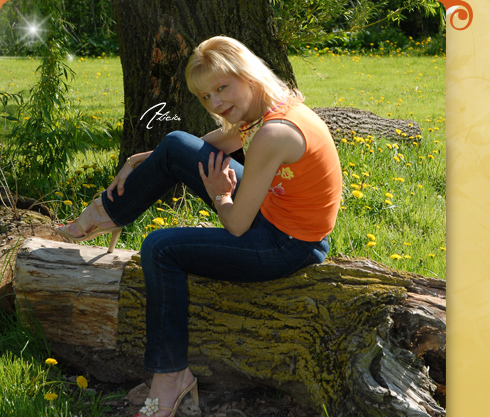Christians and Jews Are regarded considerably positively by Older people versus by Younger anyone; more Non-Christian Faiths become regarded A whole lot more Positively by little visitors
Christian communities and Jews acquire higher reviews from older Us americans (those years 65 and older) than from more youthful People in the us. By comparison, more non-Christian organizations receive their unique highest score from young North americans. Grown ups according to the period of 30, like, provide Muslims a neutral scoring of 49, typically, whereas seniors offer Muslims much more unfavorable ranks (42 the type of ages 30-49, 36 generally among those 50-64, and 32 among those 65 and elderly).
These models may to some extent reflect that there is extra Christians among older Us citizens than among more youthful folks. In Pew analysis reports executed this present year, totally 85percent of People in america many years 65 and old explain themselves as Christians, in contrast to only 59% among grownups under 30 (32per cent of whom determine as religious a€?nonesa€?).
Jews scored A lot of beneficially by Whites; Evangelicals and Muslims Viewed most positively by Blacks than Whites
Jews see her the majority of glowing rankings from whites, whom allow them to have a standard evaluation of 66. Jews also are rated well by blacks and Hispanics (with every collection providing Jews an ordinary status of 58). Evangelicals are graded really by all three teams, employing best ordinary rate coming from blacks (68). Muslims get a neutral rank from blacks  (49 typically), but are rated further badly by whites (38). Hispanicsa€™ ranks of Muslims fall in between (43).
(49 typically), but are rated further badly by whites (38). Hispanicsa€™ ranks of Muslims fall in between (43).
These discoveries may echo the racial and ethnical structure of religious associations. Several blacks detail by themselves as born-again or evangelical Christians, for instance, and 23per cent of Muslims when you look at the U.S. were black color, according to the Pew study Centera€™s 2011 research of Muslim People in the us. Completely 94% of U.S. Jews are white, as reported by the Pew study Centera€™s 2013 review of U.S. Jews.
Government and Religion: Partisansa€™ Views of Spiritual Communities
Republicans and people who tilt toward the Republican Party have a tendency to rank evangelicals very absolutely (71 generally). Furthermore they show hot ideas toward Jews (67 an average of) and Catholics (66). The warmth Republicans really feel for evangelicals may mirror the belief that a lot of Republicans and Republican leaners tends to be on their own evangelicals. Those types of who aren’t evangelical Christians, evangelicals get a typical rating of 62. Mormons receive a neutral report from Republicans and Republican leaners (52 on average), while Buddhists receive a rating of 49 and Hindus a rating of 47. Republicans and Republican leaners view atheists and Muslims alot more negatively than the two read different religious teams.
Democrats and Democratic leaners reveal comfortable emotions toward Jews (average rating of 62) and Catholics (61). Buddhists are graded confidently (57 typically) by Democrats. Evangelicals get the normal scoring of 53 all Democrats and Democratic leaners, but this drops to 45 the type of that aren’t evangelicals by themselves. With the exception of Jews, each of the non-Christian communities inquired about receive much warmer ratings from Democrats and Democratic leaners than they certainly do from Republicans.
Understanding of People of Various Faiths
Completely 87% of U.S. older people (including 85per cent of non-Catholics) talk about they individually determine someone who was Catholic. And seven-in-ten individuals (including 63per cent of non-evangelicals) state they are aware of a person who is an evangelical Christian. Because Catholics and evangelical Christians are actually such big people, it is actually to be envisioned numerous everyone would learn a person from all of these people.
The majority of North americans likewise say they are aware somebody who is actually Jewish (61%) or an atheist (59per cent), the actual fact that these associations are a lot smaller than Catholics and evangelical Christians; approximately 2percent of U.S. older people recognize religiously as Jewish, and a little bit more than 2% establish as atheists. Some other small groups tend to be significantly less recognizable to most people. As an example, 44per cent of North americans talk about they are aware an individual who is actually Mormon, and 38percent state they know a person that is definitely Muslim. Mormons constitute about 2percent belonging to the U.S. person people, and Muslims about 1%. About one-in-four older people or less talk about they are aware of a Buddhist (23%) or Hindu (22percent); these organizations each account for roughly 1per cent or less of the overall public.
Being aware of someone from a religious party is related with getting relatively much positive views of this cluster. Individuals who talk about they are aware of a person who is actually Jewish, for example, give Jews a standard thermometer report of 69, as opposed to a rating of 55 those types of exactly who say they just don’t understand anybody who was Jewish. Atheists acquire a neutral score of 50, typically, from those who declare these people physically recognize an atheist, nevertheless receive a cool review of 29 from those people that do not know an atheist. Likewise, Muslims put a neutral status (49 generally) from folks that learn a Muslim, and a cooler rank (35) from individuals who have no idea of a Muslim.
